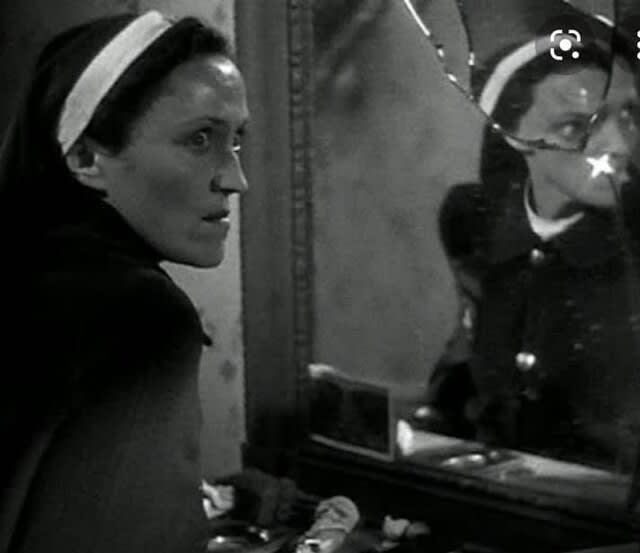
"自分を見つめる者は、自分に出会う危険がある。鏡はお世辞ではなく、そこに映っているものを正確に映し出します。つまり、私たちがペルソナや俳優の仮面で隠しているために、世間に見せることのない顔のことです。これは、内なる道を歩むための最初の勇気のテストであり、ほとんどの人が怖がるほどのテストです。なぜなら、自分自身との出会いは不快なことに属し、人は否定的なことを環境に投影できる限り避けてしまうからです。
- カール・ユング
“He who looks at himself, risks to meet himself. The mirror does not flatter, it shows accurately what is reflected in it, namely that face that we never show the world because we hide it by the persona, the mask of the actor. This is the first test of courage on the inner path, a test, which is enough to frighten most people, because the encounter with oneself belongs to those unpleasant things, one avoids as long as one can project the negative onto the environment.”
― Carl Jung
A
水面の鏡を見る者は、まず自分の顔を見ることになる。自分自身に向かう者は、自分自身との対決のリスクを負う。鏡はお世辞ではなく、鏡を覗くものを忠実に映し出します。つまり、私たちがペルソナや役者の仮面で覆っているために世間に見せることのない顔です。しかし、鏡は仮面の背後にあり、真の顔を示す。
なぜなら、自分自身との出会いは、否定的なものをすべて環境に投影できる限り避けることができる、より不快なものに属するからである。しかし、もし私たちが自分の影を見ることができ、それを知ることに耐えられるのであれば、問題のごく一部はすでに解決されています。影は人格の生きた部分であり、それゆえに何らかの形で一緒に暮らしたいと思っています。それは、存在しないように論じたり、無害であるように合理化することはできません。この問題は非常に難しい。なぜなら、人間全体に挑戦するだけでなく、同時に自分の無力さと効果のなさを思い起こさせるからだ。性格の強い人(むしろ弱い人と呼ぶべきか)は、このことを思い知らされるのを好まず、自分を善悪を超えた英雄と考え、ゴルディアスの結び目を解くのではなく切ることを好む。とはいえ、いずれは決着をつけなければならない。結局、自分の力では解決できない問題があることを認めざるを得ないのです。このような告白は、正直で、真実で、現実に合致しているという利点があり、集合的無意識からの補償反応のための基盤を準備します。あなたは今、役に立つアイデアや直感に耳を傾けたり、以前は声を上げることができなかった考えに気付いたりする傾向があります。このような時に訪れる夢に注意を払ったり、ちょうどこの時期に起こる内外の出来事を振り返ったりすることになるでしょう。無力さと弱さは、人類の永遠の経験であり、永遠の問題であるからです。この問題には、永遠の答えもあります。そうでなければ、人類はとっくの昔にすべてを失っていたでしょう。できる限りのことをやった後に残るのは、自分がそれを知っていればまだできることだけです。しかし、私たちは自分のことをどれだけ知っているだろうか?経験から判断すると、ほとんどありません。だからこそ、無意識のうちにできることがたくさん残っています。ご存知のように、祈りは非常に似たような態度を必要とし、したがってほとんど同じ効果があります。
集合的無意識からの必要な必要な反応は、原型的に形成されたアイデアで表現される。自分との出会いは、最初は自分の影との出会いである。影は、狭い通路、狭いドアであり、その痛みを伴う狭窄は、深い井戸に降りていく人には免れない。しかし、自分が何者であるかを知るためには、自分を知ることを学ばなければなりません。扉の先にあるのは、驚くべきことに、かつてないほどの不確実性に満ちた無限の広がりであり、明らかに内も外もなく、上も下もなく、ここもそこもなく、私もあなたもなく、善も悪もない。それは水の世界であり、そこではすべての生命が浮遊しており、すべての生命の魂である交感神経の領域が始まり、私が不可分にこれであり、あれであり、私が自分の中の他者を経験し、自分以外の他者が私を経験するところである。
~CGユング、CW9i、パラ43-45
A
[43] True, whoever looks into the mirror of the water will see first of all his own face. Whoever goes to himself risks a confrontation with himself. The mirror does not flatter, it faithfully shows whatever looks into it; namely, the face we never show to the world because we cover it with the persona, the mask of the actor. But the mirror lies behind the mask and shows the true face.
[44] This confrontation is the first test of courage on the inner way, a test sufficient to frighten off most people, for the meeting with ourselves belongs to the more unpleasant things that can be avoided so long as we can project everything negative into the environment. But if we are able to see our own shadow and can bear knowing about it, then a small part of the problem has already been solved: we have at least brought up the personal unconscious. The shadow is a living part of the personality and therefore wants to live with it in some form. It cannot be argued out of existence or rationalized into harmlessness. This problem is exceedingly difficult, because it not only challenges the whole man, but reminds him at the same time of his helplessness and in effectuality. Strong natures—or should one rather call them weak?—do not like to be reminded of this, but prefer to think of themselves as heroes who are beyond good and evil, and to cut the Gordian knot instead of untying it. Nevertheless, the account has to be settled sooner or later. In the end one has to admit that there are problems which one simply cannot solve on one’s own resources. Such an admission has the advantage of being honest, truthful, and in accord with reality, and this prepares the ground for a compensatory reaction from the collective unconscious: you are now more inclined to give heed to a helpful idea or intuition, or to notice thoughts which had not been allowed to voice themselves before. Perhaps you will pay attention to the dreams that visit you at such moments, or will reflect on certain inner and outer occurrences that take place just at this time. If you have an attitude of this kind, then the helpful powers slumbering in the deeper strata of man’s nature can come awake and intervene, for helplessness and weakness are the eternal experience and the eternal problem of mankind. To this problem there is also an eternal answer, otherwise it would have been all up with humanity long ago. When you have done everything that could possibly be done, the only thing that remains is what you could still do if only you knew it. But how much do we know of ourselves? Precious little, to judge by experience. Hence there is still a great deal of room left for the unconscious. Prayer, as we know, calls for a very similar attitude and therefore has much the same effect.
[45] The necessary and needful reaction from the collective unconscious expresses itself in archetypally formed ideas. The meeting with oneself is, at first, the meeting with one’s own shadow. The shadow is a tight passage, a narrow door, whose painful constriction no one is spared who goes down to the deep well. But one must learn to know oneself in order to know who one is. For what comes after the door is, surprisingly enough, a boundless expanse full of unprecedented uncertainty, with apparently no inside and no outside, no above and no below, no here and no there, no mine and no thine, no good and no bad. It is the world of water, where all life floats in suspension; where the realm of the sympathetic system, the soul of everything living, begins; where I am indivisibly this and that; where I experience the other in myself and the other-than-myself experiences me.
~CG Jung, CW 9i, Paras 43-45



















